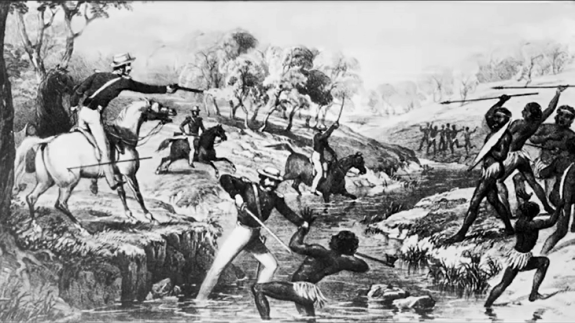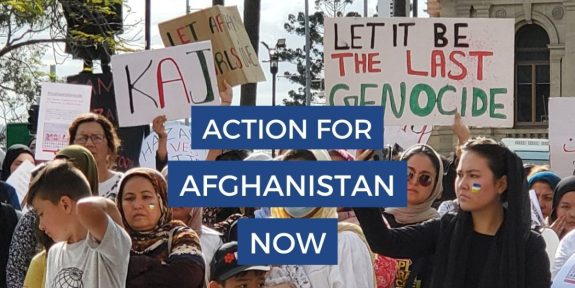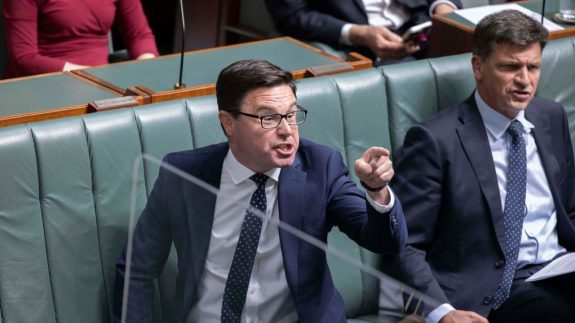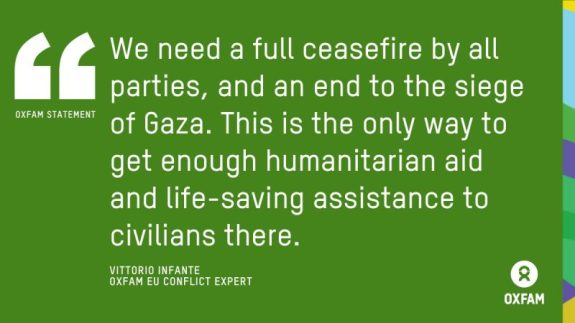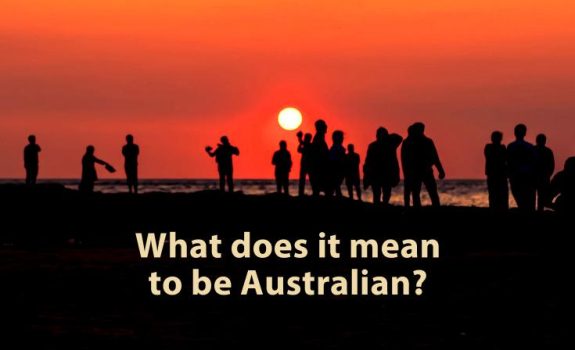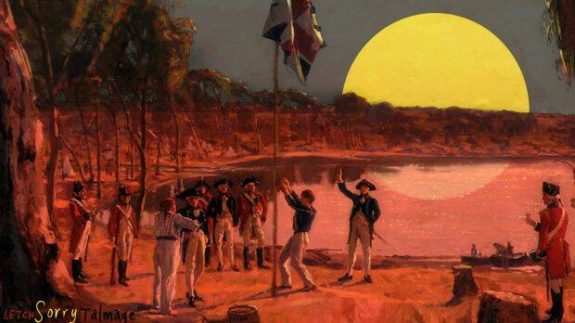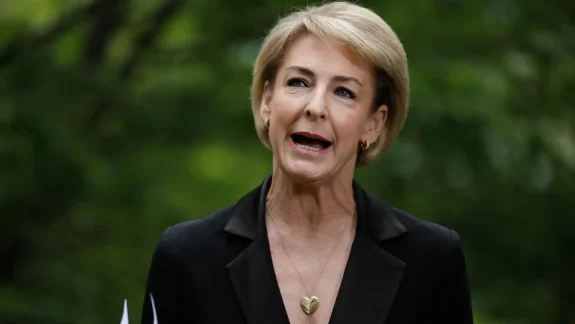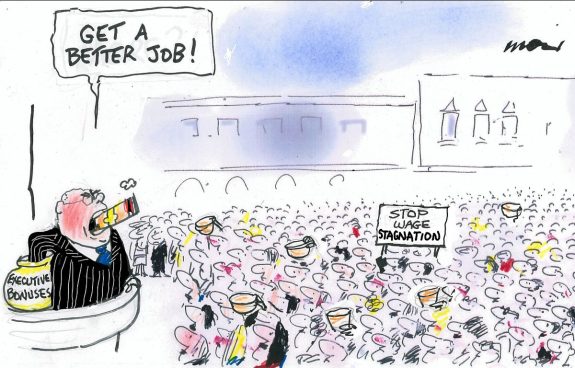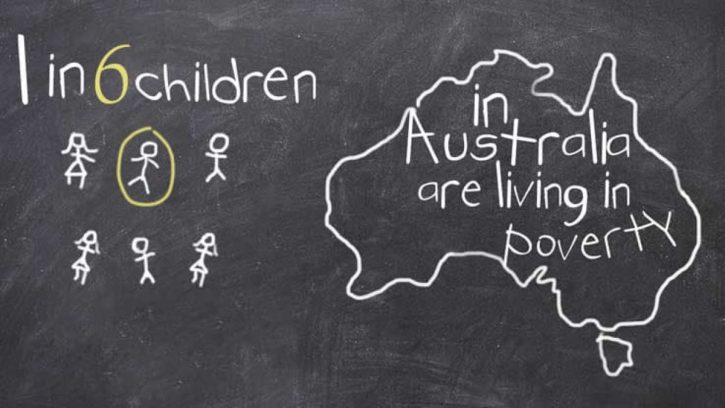Swiftie Nonsense Down Under
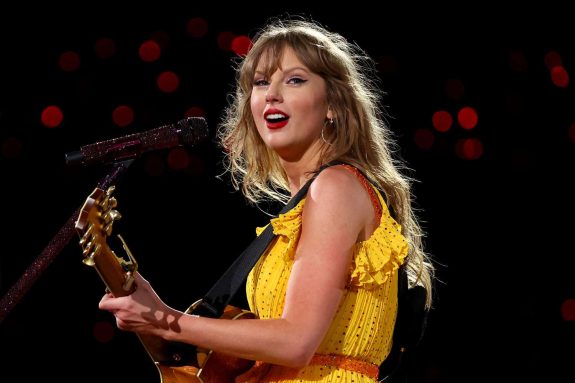
Gaza. Palestinians. Israel. Genocide. Taylor Swift? This odd cobbling of words is the extent celebrities make a mockery of serious conversation, even in such middle-brow outlets as Australia’s Radio National. Admittedly, it was breakfast, and the presenter a seasoned impressionist of journalism, but surely listeners did not have to know that Swift’s private jet had just arrived in Melbourne, making it an occasion of national significance?
Ground had already been tilled, and seeds scattered, by desperate academics keen to draw gold dust from the Swift worship machine at Melbourne’s Swiftposium 2024. Seriousness was not the order of the day and papers such as “Taylor Swift and the Nuremberg Effect on Teenage Girls” were never going to feature on any panels. Instead, it was an event to give academic circuitry – and sophistry – its deservedly bad name. “We thought we’d be having a small conference with 50 researchers in two rooms in our Faculty,” remarked Eloise Faichney, chair of the Swiftposium Steering Committee. “Then, when we ended up in publications like Rolling Stone and The Guardian, demand from the academic community to take part was like nothing I’ve ever seen before for an academic conference.” Faichney evidently knows little about the bandwagon effect of the academic scavenger, always engaged in a futile quest to find false novelty among the same bones of an argument.
And they were not the only ones. Members of the fourth estate, and many offshoots of that once revered profession, have fallen for the Swiftian rhetoric, be it in terms of the harmony effect or economic stimulus. Forget monetary or fiscal policy; get Swift to do a tour and she will add tens of millions of dollars to the country’s cash registers. Take, for instance, the following, near shameful selection of predicted returns, which the Australian historian, Humphrey McQueen, valuably gathers for us: the Australian Financial Review, A$140 million; the Daily Telegraph, A$130 million to New South Wales; the Herald-Sun, a staggering, fanciful A$1.2 billion for the state of Victoria alone.
A less noted fact is that the Swift phenomenon is costly, inflationary and exploitative. As The Daily Telegraph reported in January, airlines such as Virgin, Qantas and Jetstar were all cashing in on spiked prices, hoping to squeeze every little bit of cash from passengers, Swifties or otherwise. A one-way flight from Brisbane to Sydney with Jetstar would cost anywhere between A$399 to A$460 on the planned Sydney tour date on February 23, as compared to A$92 to A$123 the week prior. Hotels were hardly going to miss out either on the lucrative bonanza: the Marriott Sydney Harbour’s prices, for instance, rising from the pre-Swift level of $A589 to an unforgivable $A1039.
All of this served as the teaser for Swift’s mid-February arrival. Bulletins, even of such self-professed, serious news hounds as those at the twenty-four-hour ABC network, would furnish updates on the songstress’s movements. Every banal detail became significant, the fans worthy of top billing as interviewees.
Political maturity and cultivated disinterestedness also went out the window, expelled with glee. Here was a chance to get close to the phenomenon and cultivate voters – current and future – and Australian Prime Minister Anthony Albanese was not going to miss out. In an interview with Hit WA FM, he professed his delight and anticipation in attending one of Swift’s shows. “I am going to Tay Tay,” he sighed. In cringingly shallow fashion and for pure effect, he even suggested that opposition leader Peter Dutton might have a preference for the Canadian rock band Nickelback, a truly wicked contrast. “Or, the angry death metal stuff.”
Newspapers such as The Guardian Australia even urged the PM to get with the Swift program, as her “ubiquity in a fragmented world might carry some broader lessons for a man with a more modest megaphone at his disposal.” She offers, for instance, lessons in collaboration. She had “used her fame to build a network of grassroots support that has its own power, energy and agency.” And, in case you were not listening, Mr Albanese, she offered a “sense of shared joy” instead of privileging conflict.
On the other side of this gushing sludge, the Swift phenomenon manifests as a brooding presence for reactionaries worried that her influence is clandestine and planned by a politburo central committee. Or, perhaps, the Pentagon. Steady yourself, warn the likes of Jesse Watters of Fox: he has evidence that “the Pentagon psychological-operations unit floated turning Taylor Swift into an asset.” In some GOP circles, the singer is a deeply embedded psyop with collusion from the NFL. The lunacy comes full circle and Swift is very happy to tease it, telling The Washington Post in 2022 that she, and her legion of fans, have “descended into color coding, numerology, word searches, elaborate hints, and Easter eggs.” Threatening stuff.
This Styrofoam performer, this master of magisterial vacuity, who is all machine, promotion and blare, has perfected the insubstantial, promoted a competent formula and boosted it. In some ways, she has the hallmarks of Tony Blair and the New Labour experiment: start solidly, proclaim a genre, an ideology – then subvert it, discarding most of it on the way. Sincerity evaporates in the heat of its confection. Her success lies in her ability – and that of the Swift dissemination army – to mobilise the image of Swift. Everything else is just costumery, flying private jets, victimising people who monitor her flight paths, and being given stock market advice by Daddy.
Like what we do at The AIMN?
You’ll like it even more knowing that your donation will help us to keep up the good fight.
Chuck in a few bucks and see just how far it goes!
Your contribution to help with the running costs of this site will be gratefully accepted.
You can donate through PayPal or credit card via the button below, or donate via bank transfer: BSB: 062500; A/c no: 10495969












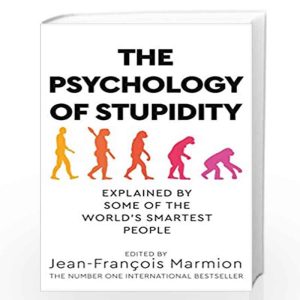 It would be difficult to actually ban people who work in Parliament House from drinking, but it surely would be a good idea to limit drinking, ban it completely within Parliament House. Parliamentarians would doubtless say that would be impossible since there are many official functions held which may well include meals with toasts and so forth, so limit the alcohol to those functions but ban alcohol at all other times.
It would be difficult to actually ban people who work in Parliament House from drinking, but it surely would be a good idea to limit drinking, ban it completely within Parliament House. Parliamentarians would doubtless say that would be impossible since there are many official functions held which may well include meals with toasts and so forth, so limit the alcohol to those functions but ban alcohol at all other times.